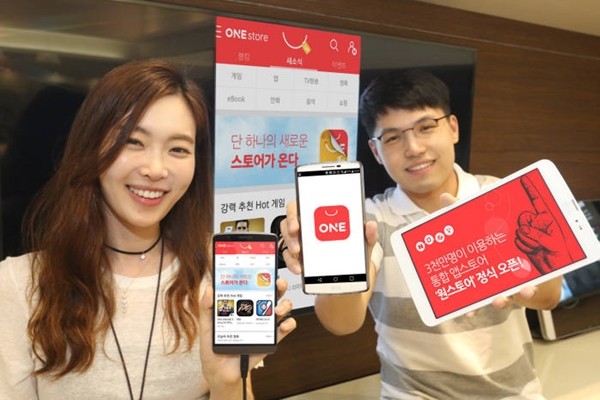It is shown that large South Korean game companies such as Nexon, Netmarble Games, and NCsoft have not released their games through native application markets this year. Although South Korea’s game industries have grown with these companies at the center, native platforms have not benefited from such.
According to industries on the 4th, these three companies released their new games this year through Google and Apple’s application markets. Excluding a mobile game called ‘Penta Storm’, which was made by Tencent during the first half of this year and released by Netmarble Games through Kakao, none of these companies released their games through native application markets.
Due to this situation, native application markets have turned their attention to Chinese games. Currently, nine of top ten games based on sales from ONE Store are Chinese games. Four of top ten games based on sales from Kakao GameShop are Chinese games. These South Korean application markets have filled their portfolios with foreign games.
‘ONE Store’, ‘Kakao GameShop’, and ‘For Kakao’ are some of South Korean application markets. As large South Korean game companies have focused on Google and Apple, global platform providers have made huge growth this year. Google, which takes up more than 70% of South Korea’s mobile OS (Operating System), is expected to make about $460 million (500 billion KRW) in just commission from South Korean games.
On the other hand, it is estimated that market share of ONE Store, which saw its market share go up to 33% (ONE Store’s own investigation, based on turnover) in December of last year, will fall to about 20% this year.
Reason why game industries are turning away from native application markets is due to efficiency. They want to focus their abilities on major markets rather than South Korean application markets. If they were to release their games through ‘For Kakao’, they have to pay commission to Kakao on top of commissions they have to pay to Google and Apple. Also the fact that it will be easier to enter global markets if they have good relationships with Google also has to do with their reasoning on why they are turning away from native application markets.

However industries are worried about possible disturbance as global application markets are taking monopolistic seats in South Korean markets. Biggest problems are circulation of funds and promotion of small and medium companies.
ONE Store and Kakao increased profit rate of game companies early on when they were establishing their application markets through reduction of commission rate, accumulation of mileage, and cashback. However it is difficult for them to maintain such high-cost policies if they cannot increase their market shares.
Lack of competitive structures leads to many risks. Three Android markets from China, where Google has yet to expand to, have made rapid growth.
Internet companies such as Tencent, 360, Baidu, Xiaomi, and Huawei and hardware (HW) manufacturers have formed their own application market ecosystems. Many of Chinese startup companies are promoted as these internet companies and HW manufacturers compete against each other with their platforms.
“Although distinctiveness of an incident from China needs to be taken into a consideration, native application markets doing businesses with foreign games is a problem.” said a representative for a game industry.
Partnership between Korea Association of Game Industry and native application markets is considered as an alternative. This strategy has large game companies who are capable of responding to funds and platforms supporting native application markets.
“It is important to release mobile MMORPGs (Massively Multiplayer Online Role Playing Game) that have many users who are in their 30s with high purchasing power through native application markets from a strategy perspective.” said a representative for a platform industry.
Staff Reporter Kim, Siso | siso@etnews.com